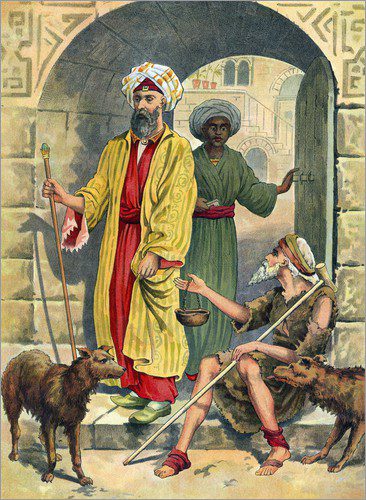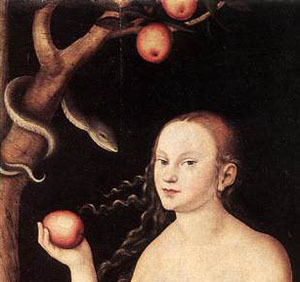I don't do a whole lot of fire and brimstone myself, but in the reading for this week, I found something that bothered me more than fire and brimstone possibly could. I myself and used to the idea of hell as a fiery pit of unpleasantness in the centre of the earth, so hearing it mentioned is not overly troubling to me anymore. But here's something that is troubling, something that does bother me, more than I thought it would.
When the rich man descends into hell in the account that Jesus shares with us, his name and his life are forgotten. Think about us and how we live as people these days. Think about how many selfies are taken and posted online every day. Think about how much time we spend trying to get people to
'like' what we do, to get them to notice us and our cute filters, to get them to comment on our achievements and to see and enjoy what we are up to. That's what an awful lot of our internet traffic is, to say nothing of googling ourselves. This is our lives, and this is what we enjoy. And what we want is our fifteen minutes of fame, to be well thought of, to be admired and noticed, to have people see what we do and like it. And in our age of fame and glory, of instant internet notoriety, can you imagine what would happen if all of a sudden all this notoriety went away, and all records of you as a person, as a person of interest, disappeared. The rich man's name isn't unknown by Jesus necessarily because he's making it up and didn't bother to come up with a name for this guy, nor is this a half-assembled parable with the rarity of only have the information being there. No, this is a situation where one of those names is left blank for a good reason. It's left blank to illustrate a point. This person, this rich man who delighted in being known and liked in life, in the hereafter is obliterated, has vanished like vapor from the notion of anyone who is at Abraham's side. The man who loved to be seen, who loved to be noticed, has disappeared. His old name that people used to use was 'Dives,' but that's not his name, that just means 'rich man' in latin. His name is not found in the book of life, so when it comes time to recount the tale, Jesus says of him 'I did not know you.'
Now, this speaks to a pretty important part of how we treat the poor. Think about where Lazarus was at the rich man's house. He was at the gate. He was lying at the gate, and would lie there day in and day out, hoping for some crumbs, some scraps, something, anything to give him a chance to eat. And I would imagine that the various people who came in to feast sumptously at the rich man's house didn't really give Lazarus much of the time of day. Not much at all. They likely viewed this poor man as an obstruction, a natural hazard like a pothole, or a fallen log, the sort of thing you have to step past, or indeed step over. They likely viewed this as an obstruction, and not as a person. How do I know?
Because I've done this too.
 Maybe I'm the only one here, and maybe I'm not. But the accepted method of dealing with the panhandler coming towards you is to avert your eyes, look at the floor, and prented you neither see nor hear them. These people, and there are lots of them, have little to no influence on society, they folks,' they have no humanity either. We just walk by like we would walk by a monkey that was begging for scraps, or a hole in the ground, or some other obstruction. Something to be avoided, not something to be actually looked at, cared for, or appreciated in any way whatsoever.They have nowhere to go and nothing to do, no jobs, and when they come face to face with us 'normal people,' they disappear, vanish, and become non-people, not even an inconvenience, but essentially invisible.
Maybe I'm the only one here, and maybe I'm not. But the accepted method of dealing with the panhandler coming towards you is to avert your eyes, look at the floor, and prented you neither see nor hear them. These people, and there are lots of them, have little to no influence on society, they folks,' they have no humanity either. We just walk by like we would walk by a monkey that was begging for scraps, or a hole in the ground, or some other obstruction. Something to be avoided, not something to be actually looked at, cared for, or appreciated in any way whatsoever.They have nowhere to go and nothing to do, no jobs, and when they come face to face with us 'normal people,' they disappear, vanish, and become non-people, not even an inconvenience, but essentially invisible.The beggars, the poor, the mendicants, those who don't have any kind of financial upward mobility, these are people who are completely without identity to us. We all have names, of course, but those who are poor, who need help, may as well be called 'the poor man' for us. And this is how I have treated the poor in my life, and there's a possibility that you have too.
The story of the rich man and Lazarus is not the story of the rich going to hell and the poor going to heaven, such a story would fly in the face of the prospect of grace, and wouldn't fit with the rest of the narrative of scripture. But let scripture interpret scripture, and you'll get an idea of what this story actually is about. Think about the 25th chapter of Matthew, where Jesus divides the sheep from the goats, mainly based on what they had either done or not done. We are used to this notion of division being along lines of the people who have done good going to paradise, and the people who have done horrible things going to hell. But if you read through Matthew 25, you'll see that that's not really the case. The people who are divided on the left hand of Jesus Christ are divided based on what they did not do. Jesus says it clearly, that they had countless opportunities to do what was good and right, that they had countless opportunities to serve him by serving others, and they declined to do so. They knew what was right to do, and yet they declined. They knew that this was the right thing to do, and they felt as though it didn't matter too much while they were alive. But Jesus makes it clear that it does matter. This is what is important. You have chance and ability to do the right thing, you have opportunity to do what is good and right, and yet you do what the rest of us do, which is to walk on by.
This doesn't run counter to the doctrine of grace, you know. Instead, it tells you of your need for that grace that most of us have cheapened for so long. Look at this story of the rich man and Lazarus, look at him and know that this rich man thought of himself as basically alright: not a murderer, not a killer, not an adulterer, probably not a thief either, someone who was successful and felt as though he was entitled to the fruits of his success. No problem there, right? But we learn from the holy scriptures that walking on by the suffering, the weak, the poor, the destitute, dehumanizing them day after day and week after week, that's a sin that doesn't exactly go unmentioned by the scriptures. When you confess your sins, when you confess your sins to the Lord your God, do you confess the massive number of times that you had the right thing to do right in front of you and did not do it? Likely not. But you ought to. Jesus thought that this was important enough to mention, that this is part of your imprefection, part of your sin, and deserves, needs to be addressed. We are living in times and places where this is more common than ever before, and we need to think on it. We are Christians, living in cheap grace, who believe that we're fine because we have nothing to repent of. Well, read this passage, think of how many people you have passed right by and dehumanized, well then, this is why you have always needed and will continue to need Christ. He has made promises to us that he can and will and does forgive sins. If the story of the rich man being blotted out from the minds of those in paradise and burning in agony makes you uncomfortable, then good. And you have a choice, which is to either step over those passages, to pretend that they were never said and aren't in the scriptures, or to realize that you maybe do have something to repent of.
And then Christ, as he has eternally promised by the blood of the new covenant, will forgive you. Because that's the promise that he made.







